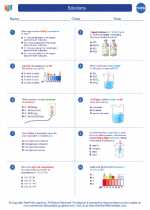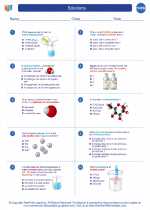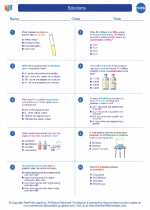Maintenance in Chemistry
When we talk about maintenance in the context of chemistry, we are referring to the practice of preserving and sustaining the quality and functionality of laboratory equipment, chemicals, and experimental setups. Proper maintenance is crucial for ensuring accurate and reliable experimental results, as well as for promoting safety in the laboratory.
Key Aspects of Maintenance
Effective maintenance in chemistry encompasses several key aspects:
- Cleaning and Storage: Regular cleaning and proper storage of glassware, instruments, and chemicals are essential to prevent contamination and deterioration.
- Calibration and Repair: Equipment such as balances, pH meters, and spectrophotometers should be regularly calibrated and, if necessary, repaired to maintain accuracy.
- Labeling and Documentation: Clear labeling of chemicals, solutions, and experimental setups, along with accurate documentation of procedures, ensures reproducibility and safety.
- Safety Checks: Regular safety inspections of laboratory facilities and equipment help prevent accidents and ensure compliance with safety regulations.
Study Guide
To effectively understand and apply the concept of maintenance in chemistry, consider the following study guide:
- Learn about the properties of common laboratory chemicals and the appropriate storage conditions to prevent degradation.
- Understand the proper cleaning techniques for glassware and instruments to avoid cross-contamination and inaccuracies in measurements.
- Familiarize yourself with the calibration procedures for essential laboratory equipment, such as pH meters and analytical balances.
- Explore the safety guidelines and regulations relevant to laboratory maintenance, including the handling and disposal of hazardous substances.
- Practice documenting experimental procedures, observations, and outcomes to develop good laboratory habits and ensure reproducibility.
◂Chemistry Worksheets and Study Guides High School. Solutions
The resources above cover the following skills:
CHEMISTRY
Matter and Its Interactions
Use mathematics and computational thinking to express the concentrations of solutions quantitatively using molarity.
Develop and use models to explain how solutes are dissolved in solvents.



